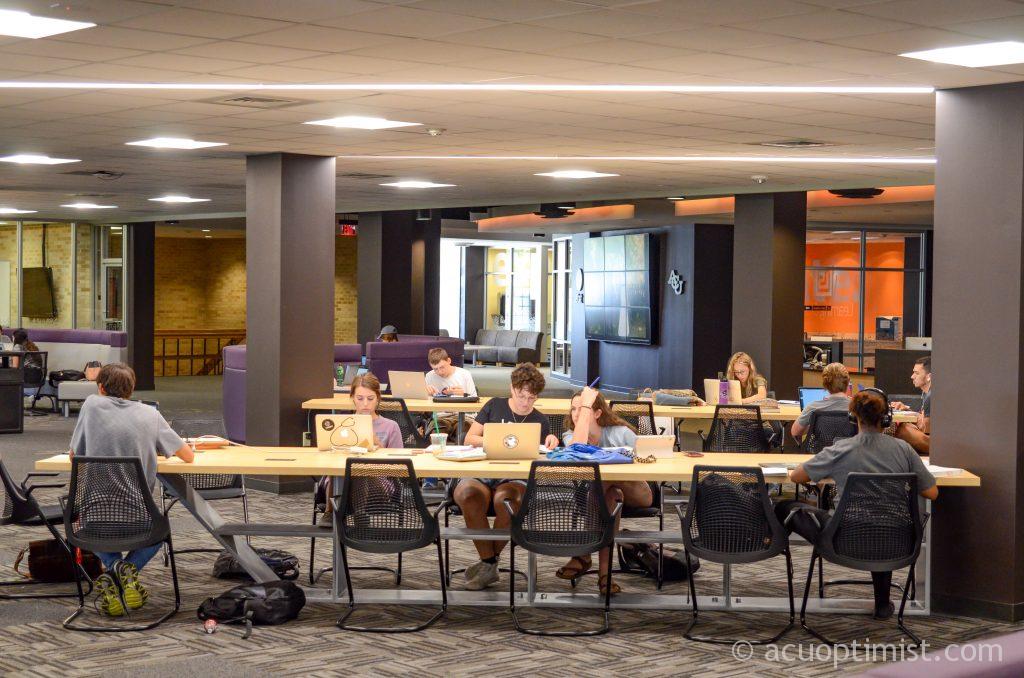The Brown Library will remain open until 2 a.m. on Sundays through Thursdays tentatively starting the week after spring break.
For the past 18 years, Student Government Association has advocated for extended library hours, said executive president Ty Kelley.
“We questioned why has this discussion gone on for so long and nothing had been done,” Kelley said. “As with everything, it’s usually a funding issue. We worked with the Office of Student Life and John Weaver from the library to agree on a one-year pilot for extended library hours.”
Though Student Life put up the main funding, SGA contributed money for a new position to monitor the library in extra hours.
Kelley said Weaver, dean of library services, suggested a new staff position funded up to 25 hours per week.
Some areas of the library will be inaccessible during the extended hours, including the lowest level and the Theological Reading Room. The MakerLab and Learning Studio hours will remain the same. Kelley said SGA has not heard back about whether Starbucks will extend hours as well, but he hopes to by the Monday students return from break.
“The hope is that if we can have a successful pilot year, that this will be something the university incorporates in their annual budget and it becomes natural. Obviously we didn’t want to do something irrational and fund something we didn’t know whether it would be a success.”
To reach the agreement, Kelley said he did a lot of research, including comparing ACU to library hours at 25 other universities in Texas. Most other state schools have 24-hour access because of higher student population and resources, he said. In addition to comparing schools, Kelley said he also found academic articles suggesting 24-hour libraries were harmful to students’ mental health.
“I got a new perspective in that and it cautioned me to make sure that what we were doing was actually good for students,” Kelley said.
The agreement for a two-hour extension was reasonable for both parties, Kelley said, and the perfect amount of time students need and will utilize.
Kelley said some doubted whether students would use the extended hours because of the normal trend that fewer students are in the library the later it gets.
“There’s so many times when you have that assignment due at 11:59 p.m. and you’re working right up to the clock to do it, and the library starts blaring music to tell you to leave, I think that’s what we’re trying to avoid,” Kelley said. “We’re trying to create a space where students can feel comfortable studying.”
The extra-hours usage will be tentatively be tracked by requiring students to swipe in and out of the library. Though the doors will not be locked, it will also help administration keep track of curfew for freshmen.
Despite the midnight curfew for freshmen, those who want to study in the library between midnight and 2 a.m. can do so by swiping into their dorm and swiping out of the library, and then swiping out of the library and back into the dorm.
Although Kelley said no set number of students must use the hours to keep the program going, if 50 percent of the student body uses the extended hours at some point, it would indicate success.
“We were blown away that it took 18 years to get here, but here we are.”

